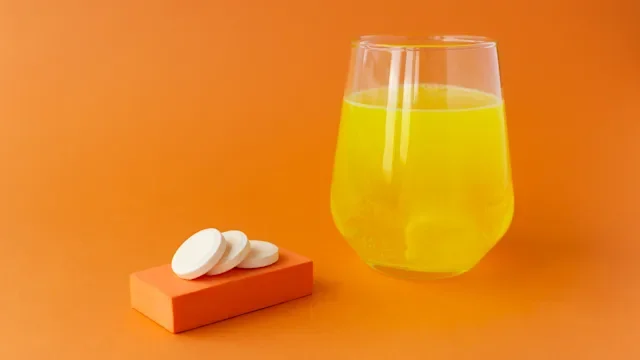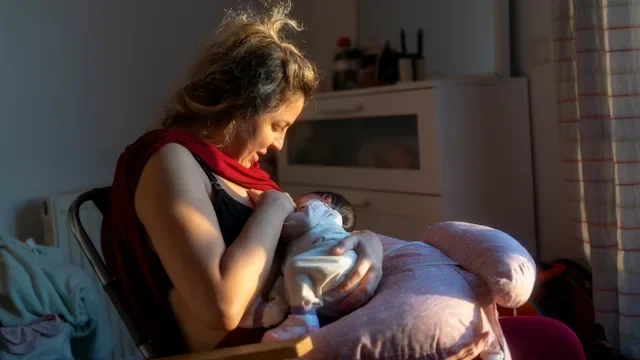Key takeaways:
When a pregnant person drinks alcohol, it can create problems for their pregnancy — and for their unborn baby.
Alcohol affects unborn babies in different ways. Along with birth defects, alcohol can cause learning difficulties and behavior problems later on.
Alcohol is one of the leading causes of intellectual disability in the world. Believe it or not, there’s good news in that statement. That’s because it means those disabilities might be prevented in the future. But there’s bad news, too. It means too many babies have been harmed by alcohol before they were born.
It’s easy to see how this situation arose. After all, drinking alcohol is common. Many people get pregnant without planning to. And some people might be pregnant for months before they realize they’re carrying a baby — and they might drink alcohol during that time. Unfortunately, alcohol is linked to a long list of possible problems in children whose parents drank while they were pregnant.
So how bad is it to drink during pregnancy? How much is too much? And if you’ve had a drink before realizing you’re pregnant, does that mean permanent damage has been done? Keep reading to learn the latest science about the effects of alcohol during pregnancy.
Search and compare options
What are the risks of drinking while pregnant?
It’s no secret that pregnant people are supposed to avoid alcohol. After all, there’s a warning label about pregnancy printed on just about every bottle of alcohol sold in the U.S. But why is drinking during pregnancy such a big deal?
Alcohol can put your pregnancy at risk
Even before your baby is born, drinking alcohol can put your pregnancy in danger. Some of the effects of alcohol are:
Slow growth of the unborn baby
Increased risk of preterm delivery
A higher chance of needing hospital or NICU care for your newborn
A higher chance of miscarriage or stillbirth
Alcohol can cause birth defects
Exposure to alcohol before birth can change a baby’s physical body. Some of these changes you can see. But others cause problems that don’t show up until later. Here are some physical birth defects that are linked to alcohol:
Small head size
Characteristic facial features, like a thin upper lip and narrow eyes
Heart problems
Joint problems
Kidney problems
Defects of the eyes or ears
Alcohol can cause learning and behavior problems
Alcohol can affect an unborn baby’s brain. When this happens, it can cause neurodevelopmental problems. While some delays might show up in the first few months of life, other problems might not be noticeable until a child is a few years old.
Neurodevelopmental problems linked to alcohol in pregnancy include:
Seizures
Slow development, including speech or motor delay
Poor social skills
Attention problems
Trouble with school work
Most of what we know about the effects of alcohol on pregnancy comes from observations. That is, researchers observe children who were exposed to alcohol prenatally and take note of how they turn out.
While this type of information is helpful, it isn’t as powerful as doing experiments to find out exactly how much alcohol is too much when you’re pregnant. But as you can probably imagine, doing experiments like that wouldn’t be ethical.
What is fetal alcohol spectrum disorder?
Babies and children who have problems because of prenatal alcohol exposure can be diagnosed with fetal alcohol spectrum disorder (FASD).
FASD is actually a set of conditions that affects babies who are exposed to alcohol during pregnancy. FASD includes:
Fetal alcohol syndrome (FAS)
Partial fetal alcohol syndrome (PFAS)
Alcohol-related neurodevelopmental disorder (ARND)
Alcohol-related birth defects (ARBD)
These conditions aren’t determined by how much a pregnant person drinks — they’re determined by how severe a child’s symptoms are.
That said, having several drinks at a time (binge drinking), or drinking often (daily or nearly daily), will make a child more likely to have severe symptoms later.
Children with these conditions are at high risk of learning and behavior problems as they grow up. These children often need help from specialists throughout their lives — including therapy, behavioral support, and social service involvement.
What happens when a pregnant person drinks alcohol?
Alcohol is proven to be dangerous at every stage of pregnancy. It’s harmful for a number of reasons.
First, alcohol is toxic. That means it damages and kills living cells. This is important because alcohol travels easily through the umbilical cord to a developing baby.
Second, alcohol is a teratogen. That means alcohol interferes with the normal process of a baby’s development.
Many things happen at once during pregnancy. In 9 months, a single cell multiplies and changes to become a baby’s skin, bones, brain, heart, and so on. All the parts move and shift in a preset pattern until they end up in the right places.
The mind-boggling series of events that goes into building a baby is controlled by a complex symphony of chemical signals. And drinking alcohol is like blaring a horn into the middle of it all.
On top of all that, alcohol clouds a pregnant person’s judgement. This can lead to other risky behaviors like smoking, using drugs, or drinking even more.
Other factors — like genetics, overall health, and nutrition — play a role in how alcohol affects an unborn baby. But here’s the bottom line: Your baby’s health is at risk if you drink any alcohol at all during pregnancy.
Is it ever safe to have a drink during pregnancy?
No level of drinking during pregnancy is 100% safe. That might not be what you want to hear. But with so many changes taking place as a baby develops, there’s always a chance something could be affected.
That said, not every drink will cause a problem. There’s just no way to know.
Researchers can’t test the effects of alcohol during pregnancy. That’s because giving a pregnant person alcohol would be unethical. That makes randomized controlled studies impossible.
Retrospective (or look-back) studies are tricky, too. That’s because some people might not be upfront about how often or how much they drank during pregnancy — or they might not remember exactly.
Data show that, for every 13 babies born to people who drank any alcohol at all during pregnancy, at least 1 will have problems strong enough to call FASD. Others will show less severe effects.
Right now researchers don't fully understand why some pregnancies are more sensitive to alcohol than others. But we do know this: Any alcoholic drink at any stage in pregnancy comes with a risk to your baby. The more often you take that risk, the higher your chances of having a baby with long-term health problems.
What should I do if I drank alcohol before I knew I was pregnant?
If you drank during the first part of your pregnancy, it’s possible the alcohol has already had an effect on your baby. But it’s also possible your baby made it through just fine — especially if you didn’t drink very much. You won’t know for sure until after the baby is born, and sometimes even for years after that.
The best thing to do now is stop drinking for the rest of your pregnancy. Don’t risk exposing your baby to any more alcohol. That will just increase the risk of something going wrong.
Instead, make the rest of your pregnancy as healthy as possible. Research suggests that alcohol-related problems are worse for babies when they’re combined with other unhealthy parental behaviors.
Try to give your baby the best possible environment for the rest of your pregnancy:
Eat a balanced diet with plenty of fresh fruits and vegetables
Take a prenatal vitamin as directed by your healthcare provider
Get plenty of sleep
Don’t smoke or use drugs
Getting yourself plugged in with a prenatal healthcare provider is an excellent first step.
The bottom line
The way an unborn baby develops is complicated, and alcohol can interfere at many different steps in the process. Because it’s impossible to know exactly what’s happening with your baby’s development at any given moment, it’s impossible to know exactly what effect alcohol could have.
While you’re pregnant, your safest choice is to take excellent care of your own health — and avoid alcohol entirely. The healthier you are, the better your chances of having a healthy baby.

Why trust our experts?


References
Chung, D. D., et al. (2021). Toxic and teratogenic effects of prenatal alcohol exposure on fetal development, adolescence, and adulthood. International Journal of Molecular Sciences.
Cook, J., et al. (2021). Characterising fetal alcohol spectrum disorder in Canada: A national database protocol study. BMJ Open.
Lange, S., et al. (2017). Global prevalence of fetal alcohol spectrum disorder among children and youth. JAMA Pediatrics.
May, P. A., et al. (2020). Fetal alcohol spectrum disorders in a southeastern county of the United States: Child characteristics and maternal risk traits. Alcoholism, Clinical and Experimental Research.
McQuire, C., et al. (2020). The causal web of foetal alcohol spectrum disorders: A review and causal diagram. European Child & Adolescent Psychiatry.
Popova, S., et al. (2021). Maternal alcohol use, adverse neonatal outcomes and pregnancy complications in British Columbia, Canada: A population-based study. BMC Pregnancy and Childbirth.














